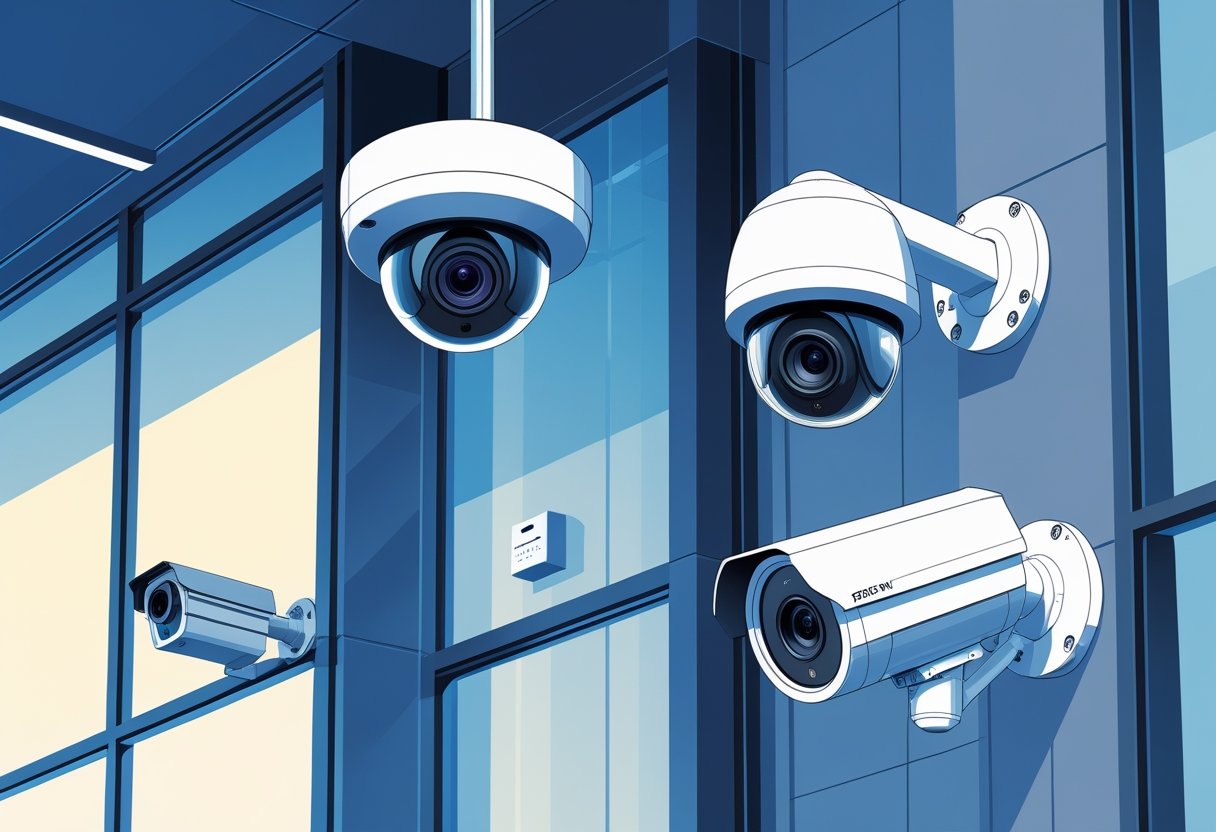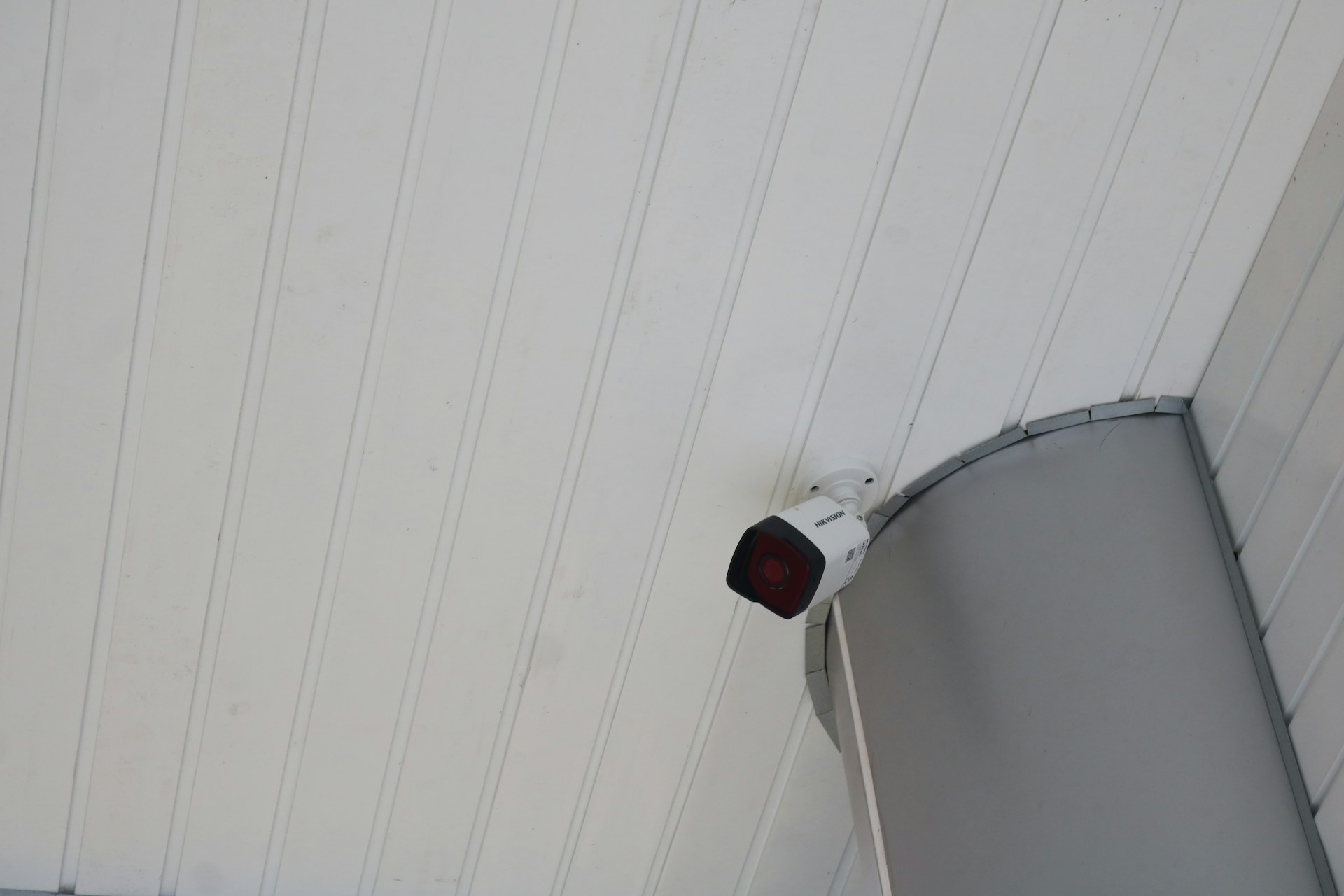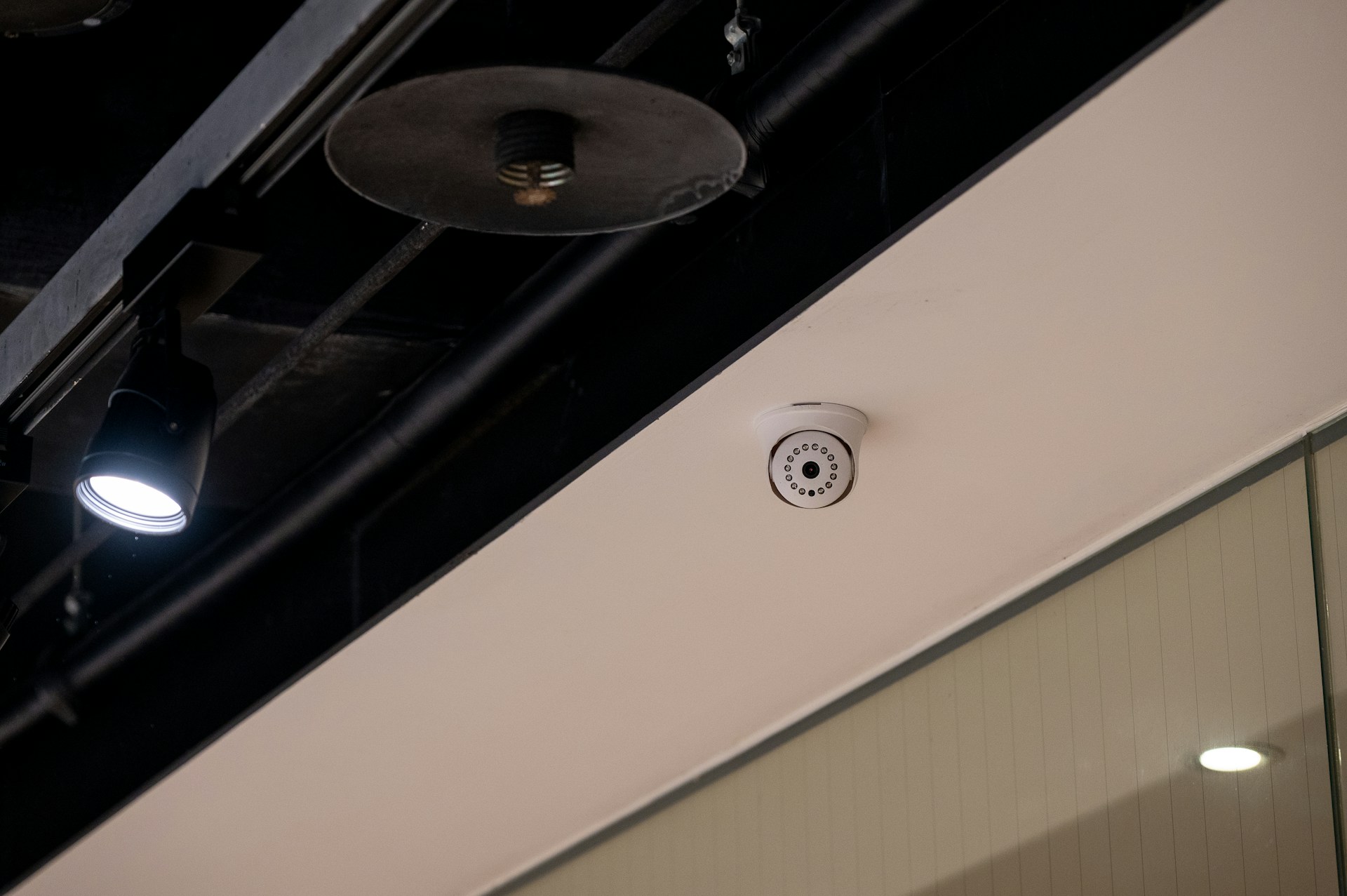When it comes to securing your business, having the right cameras plays a crucial role in protecting your assets and ensuring safety. The best cameras for business security offer high-definition video, smart detection features, and adaptability to various settings, making them invaluable for any commercial environment. With advancements in technology, today's security cameras provide not just surveillance but also analytics that can help you make informed decisions about your security strategy.
Selecting the ideal security camera requires careful consideration of your specific business needs. For instance, factors like location, lighting conditions, and the level of activity around your premises can greatly influence your choice. Whether you run a retail space or manage an office complex in the greater Houston area, equipping your property with reliable surveillance will enhance your overall security posture.
Investing in top-quality security cameras not only deters potential threats but also gives you peace of mind. By keeping an eye on your business, you can focus on what truly matters: growing and managing your operations effectively.
Key Features to Consider in Business Security Cameras
When selecting security cameras for your business, you should focus on features that enhance surveillance effectiveness. The right specifications can boost security, help monitor activities, and provide peace of mind in various environments.
Resolution and Video Quality
High-resolution video quality is paramount for effective surveillance. Business security cameras typically offer resolutions ranging from 1080p Full HD to 4K Ultra HD.
- 1080p Full HD provides clear images, making it easier to identify faces and details.
- 4K Ultra HD offers superior clarity and detail, ideal for larger spaces or areas with high foot traffic.
Always check the camera’s frame rate as well. A higher frame rate ensures smoother video, which is helpful for real-time monitoring. Look for cameras that support wide dynamic range (WDR) to capture details in challenging lighting conditions.
Night Vision Capabilities
Night vision is crucial for security cameras installed outdoors or in dimly lit areas. It enables monitoring around the clock, ensuring security even in low-light situations.
- Infrared (IR) night vision allows cameras to capture images in complete darkness. This feature can help deter criminal activity during nighttime.
- Color night vision technology enhances visibility better than traditional IR, providing clearer images.
Consider how far the night vision can reach; many cameras can effectively monitor scenes up to 100 feet or more. Ensure your chosen cameras meet your specific lighting conditions for optimal performance.
Motion Detection and Smart Alerts
Effective business security cameras should include advanced motion detection capabilities. This feature can monitor activities and trigger alerts when motion is detected.
- Smart motion detection goes beyond basic systems, allowing you to configure alerts based on specific movement patterns. This reduces false alarms caused by pets or passing cars.
- Some systems come with AI-powered capabilities, recognizing unusual behavior or person detection. This level of intelligence can enhance overall security management.
Look for options that allow you to customize sensitivity settings and notify you via mobile app alerts. This ensures you stay informed about potential security threats.
Weather Resistance and Durability
For outdoor use, weather resistance is a critical factor. You need cameras that can withstand varying environmental conditions while maintaining performance.
- IP ratings provide information on dust and water resistance. Aim for cameras with at least an IP66 rating for effective outdoor use.
- The camera build quality should be durable enough to withstand impacts and vandalism. Look for options with robust enclosures.
Assess the warranty and service options available in the greater Houston area to ensure adequate support for your installation. Proper weatherproofing not only extends the life of the camera but also enhances its operational reliability.
Types of Security Cameras for Businesses
When selecting security cameras for your business, understanding the various types available is crucial for effective surveillance. Each type offers unique features tailored to different needs and environments.
IP Cameras
IP cameras are the modern choice for businesses seeking higher-quality video and flexibility. Unlike traditional cameras, they connect to your network, allowing remote access to live feeds and recordings via the internet.
These cameras typically offer higher resolutions than analog counterparts, providing clearer images. Many IP cameras support features like night vision, motion detection, and two-way audio. They often come equipped with Power over Ethernet (PoE) capabilities, enabling both power and data transmission through a single cable, reducing installation complexity.
For businesses in the greater Houston area, selecting the right IP camera can significantly enhance security.
Analog Cameras
Analog cameras are the traditional option, still popular among many businesses for their simplicity and cost-effectiveness. They transmit video signals over coaxial cables to a Digital Video Recorder (DVR), which processes and stores the footage.
While they typically offer lower resolution compared to IP cameras, advancements have improved their quality. They are straightforward to install and maintain, making them an accessible choice for smaller businesses.
However, analog systems may not provide the advanced features found in IP cameras, such as remote access or advanced analytics. Considering your specific security needs will help in deciding between analog and more modern options.
PTZ Cameras
PTZ (Pan-Tilt-Zoom) cameras offer versatility that is advantageous for businesses needing extensive coverage. These cameras can rotate horizontally and vertically, capturing a wide field of view, and zoom in on specific areas for detailed monitoring.
They are ideal for large spaces such as warehouses and retail environments where monitoring active areas is critical. Many PTZ cameras include features such as preset positions, which allow for automated tracking of specific zones.
Integrating PTZ cameras into your security system can enhance overall surveillance flexibility and effectiveness, particularly if you operate in the greater Houston area.
Surveillance Cameras vs. Security Systems
It's important to differentiate between surveillance cameras and a full security system when setting up your business’s security infrastructure. Surveillance cameras are primarily focused on monitoring and recording activity, while a security system encompasses a broader range of tools designed for protection.
A comprehensive security system can include alarm systems, access control, and monitoring services, providing an all-encompassing approach to safety. Combining surveillance cameras with these systems allows for real-time alerts and integrated responses to security incidents.
Understanding this difference helps you choose a solution that fits your specific security needs, ensuring you have the right tools in place.
Top Business Security Camera Systems in 2025
When selecting a security camera system for your business, consider factors such as resolution, storage capacity, and ease of installation. The following options highlight leading systems that offer advanced features and reliable performance tailored for your needs.
Arlo Pro 3
The Arlo Pro 3 is ideal for businesses requiring high-definition video and flexible installation options. With 2K resolution and color night vision, it delivers clear images, even in low-light conditions.
Its wire-free design simplifies installation, while the integrated spotlight enhances visibility. The camera is weather-resistant, making it suitable for both indoor and outdoor use.
Features like a built-in siren and two-way audio help deter intruders. Additionally, Arlo offers cloud storage options, allowing you to save recordings securely.
Swann 12-Camera Security System
The Swann 12-Camera Security System stands out for its extensive coverage. It includes 12 cameras that provide 4K Ultra HD video, ensuring detailed surveillance for larger business premises.
With features like heat and motion sensing, the system minimizes false alerts. The cameras are equipped with infrared night vision capability for 24/7 monitoring.
A 2TB hard drive is included for storing footage, allowing for easy access to recorded material. You can control the system via a mobile app, which enhances convenience and accessibility.
Google Nest Cam
The Google Nest Cam excels in smart home integration, making it a strong choice for tech-savvy business owners. It offers high-definition video streaming and advanced AI capabilities for smart alerts based on movement detection.
The camera is designed for both indoor and outdoor use, featuring weatherproof casing. Its two-way audio allows for direct communication with visitors or intruders.
You can easily manage the camera through the Google Home app, ensuring you stay connected to your business environment at all times. Nest Aware subscription options add further storage and advanced features.
Reolink
Reolink offers a range of camera systems that are customizable to your business's specific needs. Known for their affordability and high quality, Reolink cameras come in various resolutions, including 4MP and 5MP options.
Installation is straightforward, and the systems can be powered via PoE (Power over Ethernet) or battery. Many models also include night vision capabilities for around-the-clock surveillance.
Reolink supports local and cloud storage to suit different user preferences. Alerts can be sent to your mobile device, ensuring you remain informed of any activity around your business premises.
Deployment Strategies for Comprehensive Coverage
Effective deployment strategies are essential for achieving comprehensive coverage in business security. Focus on specific areas like warehouses and parking lots to maximize safety. Additionally, integrating cameras with existing security systems provides a cohesive approach to monitoring.
Optimizing Placement for Warehouses
When securing a warehouse, consider high-risk areas such as loading docks and entry points. Position cameras to capture every angle, aiming for unobstructed views. Utilize both indoor and outdoor cameras to get full coverage.
Key considerations:
- Camera Type: Use high-resolution cameras for clear images, especially in low-light conditions.
- Field of View: Employ wide-angle lenses to reduce the number of cameras needed.
- Height and Angle: Mount cameras at a height of 8-10 feet, angled downward for better coverage.
Regularly assess camera placements and adjust as needed based on changing layouts or security needs.
Securing Parking Lots
Parking lots are vulnerable areas that require strategic camera deployment. Focus on entrances and exits to monitor vehicle activity. Ensure that cameras can capture license plates and any suspicious activity.
Tips for effective coverage:
- Lighting: Install cameras in well-lit areas to ensure clarity, especially at night.
- Placement: Position cameras above entry points and on building corners for maximum visibility.
- Coverage Analysis: Conduct periodic reviews to identify any blind spots.
Incorporate signage to inform individuals they are being monitored, which can deter potential vandalism or theft.
Integrating with Existing Security Systems
Integrating new cameras with your existing security systems enhances coverage and response capabilities. This creates a seamless monitoring approach that improves overall security.
Steps for integration:
- Compatibility: Ensure that new cameras are compatible with your current system.
- Centralized Monitoring: Use a single interface to view all camera feeds, which makes monitoring more efficient.
- Alarm Systems: Link cameras with alarms to trigger alerts during suspicious activity.
Regularly update and maintain software to enhance functionality and security, ensuring your business remains protected.
Remote Monitoring and Accessibility
Remote monitoring and accessibility are crucial for maintaining security in your business. These features allow you to keep an eye on your premises from anywhere, ensuring real-time response to any incidents.
Mobile Apps and Cloud Storage
Mobile apps are increasingly essential in modern security systems. They allow you to monitor live feeds and receive instant alerts on your smartphone.
Most security cameras designed for business come with dedicated apps that provide user-friendly interfaces. This accessibility enables you to check footage, adjust settings, and review recordings while on the go.
Cloud storage is another vital component. Rather than relying on local storage, cloud options provide safer data protection. Your footage is stored securely online, reducing the risk of data loss due to theft or hardware failure.
Additionally, many cloud services offer scalable storage options, allowing you to select the amount of data you need. This flexibility can help manage costs effectively while ensuring your footage remains accessible.
Remote Access Features
Remote access features play a significant role in how efficiently you can manage your security system. You can control cameras, adjust settings, and access recordings from anywhere in Houston.
Look for systems that support multiple device access, such as PCs, tablets, and smartphones. This feature helps you stay connected, whether you're in the office or off-site.
Another important aspect is the ability to set customizable alerts. You determine which events trigger notifications, ensuring you receive updates only on what matters most.
Some advanced systems even offer two-way audio, letting you communicate with staff or visitors. This interactive element can enhance security measures without requiring physical presence.
Comparing Business and Home Security Solutions
When evaluating security solutions, it's essential to recognize the distinct needs of businesses compared to home security. Businesses often require more robust features and scalability to ensure comprehensive protection. Understanding these differences will help you make informed decisions about the best security system for your needs.
Differences in Feature Requirements
Business security systems typically demand advanced features compared to home security solutions. You may require higher-resolution cameras for clearer images over larger areas, enabling better identification of individuals. Video analytics, such as motion detection and alerts, are crucial for monitoring specific zones.
Businesses often also necessitate multi-camera setups and centralized monitoring systems to oversee various angles simultaneously. Alongside this, consider the importance of cloud storage options for video footage, which may not be as critical for home security. Additionally, businesses generally need higher durability standards in their equipment to withstand different environments.
Adapting Home Security Features for Business Use
While home security solutions can offer basic protection, adapting these for business use can enhance security measures. Many residential systems provide features such as remote monitoring and smartphone access that can be beneficial in a business environment.
To suit business needs, you can implement additional motion sensors and smart alarms. These features can create alerts for unauthorized access during off-hours or deliver real-time notifications to your mobile device. Also, integrating access control systems can restrict entry to sensitive areas, which is not typically a consideration in home security.
By leveraging these adaptable features, you can create a tailored security solution that meets the specific demands of your business while maintaining manageable costs for your setup.
Frequently Asked Questions
When selecting security cameras for your business, you may have several questions. This section addresses common inquiries regarding the best systems, key features, installation, and related tax considerations.
What are the top-rated security camera systems for small businesses?
Top-rated security camera systems for small businesses include options from brands like Hikvision, Dahua, and Arlo. These brands are known for their reliability, quality video footage, and user-friendly interfaces. You can find systems tailored specifically for small business needs.
What features are important when choosing a security camera system for business use?
Important features to consider include video resolution, night vision capabilities, remote access, and smart alerts. A user-friendly app or interface for monitoring feeds can significantly enhance usability. Additionally, consider whether the system supports cloud storage for easy access to recorded footage.
Are wireless security camera systems recommended for business settings?
Wireless security camera systems can be highly beneficial for business settings due to their ease of installation and flexibility. They allow you to reposition cameras without the hassle of wiring. However, ensure that you have a strong Wi-Fi connection to avoid connectivity issues.
What are the advantages of 4K security camera systems for businesses?
4K security camera systems provide much clearer images than standard HD systems, which is critical for identifying details like faces and license plates. This higher resolution can be particularly useful for larger areas where zooming in on footage may be necessary.
How should a business approach the installation of security cameras?
Proper installation requires careful planning. Assess the areas that need coverage, considering both visibility and security. It’s often beneficial to consult with professionals who understand the specific requirements of business environments.
Can security camera expenses be deducted for business tax purposes?
Yes, security camera expenses can typically be deducted as a business expense on your taxes. This includes the purchase cost, installation fees, and any maintenance. Consult with a tax professional to ensure compliance with IRS guidelines and maximize your deductions.
.svg)



.svg)


.svg)



